Dear Jaybook Friends, hello —
What happened to Jaybook? Does it exist any more? The past little while has been a smack down. I’ve barely had time to think let alone write. Busy busy busy, all the while distracted by the world and all of its glorious enshittification. And so now, here I am, so many weeks since my last Jaybook entry, and there is too much to share. I don’t even know where to begin. And I can’t expect you to read or even care about a novel-length share. It’s overwhelming. Yet I shall force myself past all the whelms and begin writing, with the goal of sending this out on a Friday as usual. As such, this will be an exercise in whether I’ll successfully access my memory under the constraints of some arbitrary deadline. What will I remember? Do I have memory? No matter what, this will be incomplete. And long. Maybe. I might also give up.
The place to begin is with PJ Harvey. Hazel and I had tickets to one of her two sold-out shows at History toward the end of September. Yes, this makes sense: I have a distinct memory of wanting to share some thoughts about that show. Because as a musical performance, it was incredible. I’m not sure if I’ve ever encountered an artist more poised in her artistry than I did that night. Even waiting for the show to begin was part of the show, a slow ambient crescendo that grew until the house lights finally fell and PJ and her band took the stage. And then she held us all captivated for a spell. It was effortless, or at least appeared as such. She played through her latest album I Inside the Old Year Dying (which is a phenomenal album, and perfect, I might add, for this time of year), then took a short break while the band came forward and played at the front of the stage — they had the appearance of a drum and fife band. And then PJ was back to play a selection of favourites from her discography. I’m not sure what she was doing or how she was doing it — playing a character, channelling a spirit — but whatever it was she never broke the spell of her performance, not even for a second. Not even when she paused to thank everyone for coming, or when she introduced her band. This was serious work.
After the performance came to an end we were treated to a couple of dudes who kindly explained the whole show at top volume during the long slow shuffle out of the venue. It was as though they were hosting a podcast called Two Men Explain the World to the World. This burst the rather exquisite PJ Harvey bubble we had been floating in, and had hoped to remain inside for at least a little while. Alas, this was not to be — pop! Most impressive was their loud confession right off the top that they hadn’t heard the new album yet, so the show was not what they had been expecting. What were they expecting? Did they think that they had bought tickets to a different show altogether? Their podcast was terrible — I do not recommend it.
The weekend following the PJ Harvey concert involved a divide and conquer series of book fairs. In Toronto: Word on the Street; in Brooklyn: Brooklyn Book Festival. I flew to New York to person our table in Brooklyn, while Hazel stayed on the ground in Toronto to work Word on the Street with our team. For some reason it was cheaper to stay in Manhattan, so I spent the afternoon on Saturday wandering up avenues in the rain. It was that hilarious sort of rain that comes at one from all angles. Hurricane season in New York is always a delightful time to schedule an outdoor book fair with no contingency plan for weather, so all I could do was hope that the rain might stop.
To escape the rain, I wandered toward the Museum of Modern Art. So did most people, I think, since I had to stand in line for a while to get in. Once inside I wandered around aimlessly — the best way to visit a museum. What I particularly love about visiting museums that contain “important works of art” is watching people look at paintings. I don’t know why I love this so much, but it is almost more interesting than looking at the paintings themselves. I mean, I do love to sit and contemplate a good painting, but people watching in museums adds a layer of meaning that is equally parts delight and frustration. For instance, you can easily determine which paintings are best known, because there is no way that you’ll have the opportunity to sit and contemplate that painting — you have to fight for a decent sight line. The painting you are least likely to get a good look at in the MOMA is van Gogh’s Starry Night. There are others: Dali’s The Persistence of Memory, Kahlo’s Self-Portrait with Cropped Hair, for instance. My favourite room was the gallery dedicated to Monet’s Water Lilies, a gallery expressly built for people watching, with seating in the middle of the room. This gives you ample opportunity to contemplate the backsides of all the people contemplating the large paintings. People take selfies, wander close to the canvas, sometimes even leaning in across the designated threshold created by the museum. Is this really how we consume art? I had the best time. What strikes me most in museum adventures such as this is that people really do want to see the original painting they have seen a million times before, but in order to take a picture of the original painting and add their own copy to the millions of other impressions floating around. Some people grab their chance to take a photo quickly and then skirt way, almost as though they are embarrassed about the whole thing.
Meanwhile, there were amazing paintings that very few people were looking at, some being paintings that I’ve never seen by big name artists, such as an O’Keefe or a Pollock. There was plenty of fascinating work by artists I’ve never heard of that were a delight to stumble upon and consider in the relative loneliness found in front of them. And most delightful that afternoon was an entire room dedicated to John Giorno’s Dial-A-Poem, where I killed a good chunk of time listening to recordings of poems by some of my favourite American poets — Ted Berrigan, Anne Waldman, Joe Brainard, John Giorno himself, others — all in their own voices from the tiny speaker of an old rotary phone set up on a bare white table. It was a solid bit of time travel I quite appreciated. I believe, if you are interested, that the number in the photo below can be called if you want to listen to some Dial-A-Poem poems.
The next morning I got up, and managed packed all the books we’d shipped to the hotel into my amazing carry on luggage backpack, which I then humped to Brooklyn on the subway. In Manhattan: drizzle. When I emerged from the subway at Borough Hall in downtown Brooklyn: pouring rain. Which continued until about 4:30 in the afternoon. Friends, there is nothing like trying to sell books in the rain. The atmosphere is positively built for it. Books are constructed to be submerged, are they not? I spent most of the day watching them absorb moisture from the air, the covers of those books at the top of their piles curling back as though trying to scratch their spines. That said, I was pretty lucky. My table was set up in a tent with three walls, perhaps a perk of being placed at a location removed from the centre of festival activity. So while I did have to stand in something of a shallow river or reflecting pool for the whole day, I was reasonably protected from the elements. Unlike many of my colleagues, who were given less than sturdy sun tents, the kind that gathers water until the weight spills it out over everything — the kind that has no walls, and it was the kind of rain that comes at you from every which way. I suspect that many a book was lost that day. I very much appreciated the gentleman who came into my booth toward the end of the day a proceeded to comment “that’s too bad” referring to the rippling paper and curling covers on my books, and then wandered away. I’ve always appreciated conversations about the obvious.
Of course, things went slightly more smoothly than they did two years ago, when the organizers cancelled the fair half an hour before it was scheduled to begin due to the high winds from Hurricane Ian. So, silver linings, I guess. And in the end I sold just as many books as the year previous, when it was a glorious autumnal day. Which means it is time to reconsider the Brooklyn Book Festival.
Another silver lining: a Czech agent turned up at my booth, as did a few Czech editors. The Czech Republic, it turns out, is the guest of honour in 2026 at Frankfurt, so they had sent a group of authors and editors and agents to the festival to begin promoting their literature. They were hosting a luncheon on the upper east side the following day, and my books, along with the fact that we publish a lot of translations, impressed them enough to invite me to said luncheon. So on Monday morning I packed up my amazing backpack, including all of the books that I didn’t sell, and wandered down to 8th and 14th for a morning meeting at the offices of New Directions, with whom we have shared some recent titles. There I was treated to a short tour of their 19th floor offices, including a glimpse of their impressive archival library, and equally incredible, the view from their balcony looking south toward Brooklyn and New Jersey. My goodness, the things legacy can provide.
I bid farewell to the ghost of James Laughlin and scooted to the Upper East Side where I was treated to a terrific Czech spread, learned about Czech literature (which I confess I know little to nothing about), as well as the funding programs in place to support the translation and publication of Czech writers. I made connections with editors and agents to meet with in Frankfurt. I also hobnobbed with various publishing colleagues from New York who were also present. Eventually my clock ran down and I had to make my way to Newark to catch my flight back to Toronto. All in all, a relatively unexpected and pleasant day that wrapped up a questionably necessary trip. All I can say is thank goodness for unexpected connections. I was glad that Hazel and the rest of the team had a fantastically successful weekend at Word on the Street in Toronto that helped to offset my losses in Brooklyn. Publishing: the industry in which you pray to break even somehow!
Sometime between my return to Toronto and our trip to Europe for the Frankfurt Book Fair, I received word that John Barlow passed away. This was unexpected news. I hadn’t been in communication in any real capacity with John for some time, let alone seen him in three dimensions. As such there is something odd and difficult about the grief I am experiencing: it is at a distance, and tinged with some form of unnecessary regret. How is it that distance between people occurs? John was an important figure in my life during the 90s and early 2000s, back when there was a community of poets and writers in Toronto to which I felt I belonged. And now he is gone. Entropy is a quiet, slow moving beast, but with sudden stops along the way.
Oddly, just a few days prior to hearing the news, a box arrived at our office. It was delivered by someone who didn’t know what was in the box or who it was from, only that they were supposed to drop it off at our office. It was a ramshackle box, collapsing at all sides, held together with a lot of packing tape; a sheet of paper with BOOK*HUG PRESS and my name and our address was fixed to the top. When I broke into it I discovered a sloppy collection of small press material from 90s Toronto; it was then I remembered an acquaintance reaching out a few months ago to see if I’d be interested in a collection of said material because they were moving across the country and didn’t want to take the box with them. Looking through the contents was a bit of a nostalgic dive — there were many items I remembered well, even some fairly rare things I’d published myself. I was sifting through a small archive of the scene in Toronto at the time. Included were many pieces by John, or that had been published by him. With the news of his death it all became an odd coincidence, strangely Barlowesque, as though the universe was inviting me to look into my past in a variety of ways, first through a collection of objects, and then through my own personal memories as John made that shift as a person out there in the world to a set of memories I will carry around inside of me: one of the many delicious burdens a human life is heir to.
Some of you knew John, but for those of you who didn’t he was a relatively looming figure in the Toronto scene back in the day, ever present at reading series and literary events, handing out copies of Oversion — an ongoing endeavour he maintained by which to publish himself and anyone who submitted poems. My understanding of Oversion is that it was, like most literary magazines, a repository of community. It had been (at least as John once explained it to me) originally begun with his friend and roommate Bill Kennedy as something of a subterfuge endeavour. Since the goal of submitting poems to a magazine is to get published, they would simply respond to anyone who submitted work with a letter of acceptance to Oversion. Magazines are ephemeral at best, always disappearing as a new issue appeared, but a letter of acceptance was more permanent, something that would allow writers to include the credit on their CV, which could then help them build their careers, apply for funding, and so on. But eventually writers wanted to know where their payment copy of the magazine was, perhaps so they could read themselves, or include it in their archive, as writers are wont to do. So John responded to their request by simply reproducing their work exactly as submitted, using a photocopier, stapling the sheets together, and handing it back to them. Over time Oversion became entirely recombinative, photocopying photocopies of photocopies, sometimes to near disintegration, and John would add new work by himself and others, layering work and creating pages that were as visual as they were a receptacle of work by a living and breathing community. In essence, whether intentional or not, John created an organic and evolutionary form of publishing that was, in many ways, a massively delightful fuck you to the idea of publishing itself. He even enjoyed colouring the covers by hand, using watercolours and highlighters that he bought at dollar stores.
I remember often stopping by his apartment on Bathurst Street after a day at work and we would sit on his rooftop patio to chat about whatever and watch the clouds go by. We collaborated in various ways creating and writing under different heteronyms, which I know influenced my first “real” book The Ghosts of Jay Millar, a book published by Coach House Books with my name in the title but containing writing by five different poets. John created a version of that book called Across Southwestern Ontario — pulling out his favourite poems and creating an order for them that we published under the imprint Ontario Press. I enjoyed imitating his vocal lilt, and sometimes his writing style, at least until he called me out for being particularly chameleon-like. I’m quite sure that lilt still comes out of me from time to time. I appreciated how he viewed the world as entirely imaginary: made up, a figment. He had a great reading style, which consisted of sitting in a chair on stage with a stack of paper from which he selected things randomly to share in some capacity, cigarette in hand along with a pint of beer, spilling — almost nothing was read in the traditional sense of reading poetry to an audience. It reflected a distinct position of anti-professionalism that was an extension of John himself, zero separation of art and person. I distinctly recall a reading he gave at a marathon event hosted by the Scream Literary Festival. I was standing next to him in the crowd when he suddenly realized it was his turn to read. “Oh my, I’m next!” he exclaimed, and lumbered onto the stage. He stood there awkwardly holding the microphone, looking around, blinking, laughing nervously, twitching, sighing — he looked like he was trying to figure out what he was doing there. We, the audience, waited, some nervously laughing, some looking worried, others annoyed. After a few minutes John simply said “I think that will be my reading tonight,” placed the mic back in its stand with an audible thunk, and left the stage. It was brilliant: without saying a word he had allowed us to experience a spectrum of emotional states any good poem should evoke.
I also loved his poetic renderings of the NHL, a sport I had little interest in, but was happy to listen to John ramble on in mythic detail about the many humans who played for the Toronto Maple Leafs. He would invent the Oversion Party of Canada, an imaginary political party (just like all political parties) that had, I think, ten platforms including the legalization of drugs and prostitution, and a guaranteed minimum income for all. I know there were more platforms. It is something to consider all these years later which of the Oversion Party’s proposed platforms has become a reality: why that one? At some point the two of us drove across South Western Ontario together to do a reading in Windsor. We stopped for a meal at my parents’ place near Lucan: John particularly loved interacting with my mother’s horses and took many photographs of them. He was always taking photographs in the most unprofessional ways possible, on the move or from strange angles, not even bothering to look through the viewer, and he was endlessly surprised and delighted by the mythology the photographs created when he would finally get around to processing the film, which sometimes took years. His freezer was full of unprocessed film. And Oversion was often full of reproductions of his photos.
There was even a brief period of time when John and I worked together at Print3 on the corner of University and Wellington in downtown Toronto. This was undoubtedly a terrible idea — to put John in close proximity with photocopiers — it was bad enough that I was working there in the first place. I like to imagine that our presence may have had something to do with the fact that this franchise location no longer exists. I have no idea how I convinced my employer to hire this curiously impish, giggly, and gently dishevelled individual, but I did, and it certainly made the days in corporate Toronto interesting. This was after he had split up with his long time partner, had left the magical apartment on Bathurst Street where he lived for many years (where, at John’s inviation, Hazel and I ended up with a small group of people after our stag and doe party at The Great Hall until the sun came up) and was living with a group of anarchists in a house on Baldwin Street. I remember stopping by that house once after work. John wasn’t there, so I waited for him in his room. His computer was on, so I started typing. I typed for over an hour. John hadn’t returned, so I left. I have no idea what happened to that text, now that I think of it. I can’t recall if John ever mentioned it to me, just like I can’t recall how or when I met him.
John published three “real” books, all with Exile Editions, mostly because of Jacob Wren who had been publishing with them at the time and convinced the publishers (perhaps similarly to how I’d convinced my boss at Print3) that they should publish his work. Safe Telepathy is a beautiful book full of wonderfully conscious lyric poems — I still return to it from time to time with fondness. The two that followed, ASHINEoVSUN and ASHINEoVSUN II are completely different beasts, wonderful in their own way, but an ongoing disintegration of what one might consider a poem. This is, in may ways, one of John’s great legacies as an artist and a human — disintegration. I believe (I heard this from someone) he eventually arrived at a place where he decided that poetry no longer exited. Like I said, entropy is a slow and quiet beast, with sudden stops along the way.
Last week I was going through some things for Apollinaire’s Bookshoppe and I came across a copy of a journal called the Penny Arcade's Perpetual Motion Machine. It’s a pretty interesting gathering of writers from that time and place: 1990s Toronto. Within those pages is a poem of mine written for John I completely forgotten about: “Imaginary Tombstones.” It’s a complicated poem, at least it feels so now; it is perhaps even critical. I don’t think it ever appeared anywhere other than Penny Arcade. I might share it at some point. But here’s the thing: I’ve been thinking about the past, about my youth and the community of which John was an intricate part, and the Toronto that was home to it. All of it is pretty much gone. Not only the community, with its unbelievable serious dedication to something as useless and wonderful as Poetry, but also the city. That Toronto is no more. Probably the same can be said of any city by anyone who has lived long enough in them. Most of the people who made up that community in Toronto are still kicking in one way or another, Hazel and myself included, but they are scattered, now mostly connected virtually, which isn’t the same. I find myself thinking about all those readings — the Idler Pub, or Lexiconjury, or Test Reading Series, other one-offs held in apartments or lofts or galleries, space where people gathered to celebrate and commiserate and even argue over what a poem might be. In my mind John is always in those spaces. John’s passing made me realize how much I miss it all. In particular, I miss his particular slant — John didn’t really care if anyone read his work, and certainly had no goals in mind toward a professional role in the world of writing. He just liked people interested in poetry, and he liked to write for whatever quiet reason. I think it made him happy. With no agenda, it probably made him a more interesting writer than most.
I did hear from John late last August. It was a short exchange out of the blue, a rather Barlowesque response via Messenger to a FB post I’d made on ALLCAPS DAY, and like most exchanges over text it went nowhere. They are now our final words to one another:
Great post tonight Jay. It’s true, our mental lives are evacuated by such circumstances. Funny you posted. I thought of you today. There’s a hill through trees I climb up to my workworld, and there was a blue jay somewhere nearby in the trees, letting rip with it's vocalizations. "Jay is pissed off," I chuckled to myself. And it flashed back to me, past occasions and conversations and jobs and correspondences and that wonderful ride to your family farm and then Windsor back then. Beautiful times. Thinking well of you.
Hi John — nice to hear from you. There are days when I wonder what you are up to as well. It is rare that I post to FB any more, but I couldn't not take part in ALLCAPS DAY. Since it is one of the few things I celebrate 🙂. I'm glad it connected with you and with blue jays. Hope things are well in your universe!
Well Jay, little has changed. I'm still doing the day job, spending my day piling up cloud photos on smoke breaks, and talking to my coworkers about my lunch plans for the day. It's not lie. Then tired in the afternoon and dying to get home and have fun. Just playing out the math of how to live on. Good luck on your Substack. That place is cool. Substacks a very alive place like how it works, the formatting’s really cool it seems well run. Ive only engaged Ukraine issues there but it’s consistent on being a clean and tidy workplace for what you want to say or write . These are the glory days Jay, when our minds catch up with our lives, all out of breath,, but at last caught up.
Farewell, John. I’m sorry we didn’t keep in touch over the years as well as we could have. Here’s hoping wherever you are, it’s endlessly imaginative.
I think that will be my post for today.


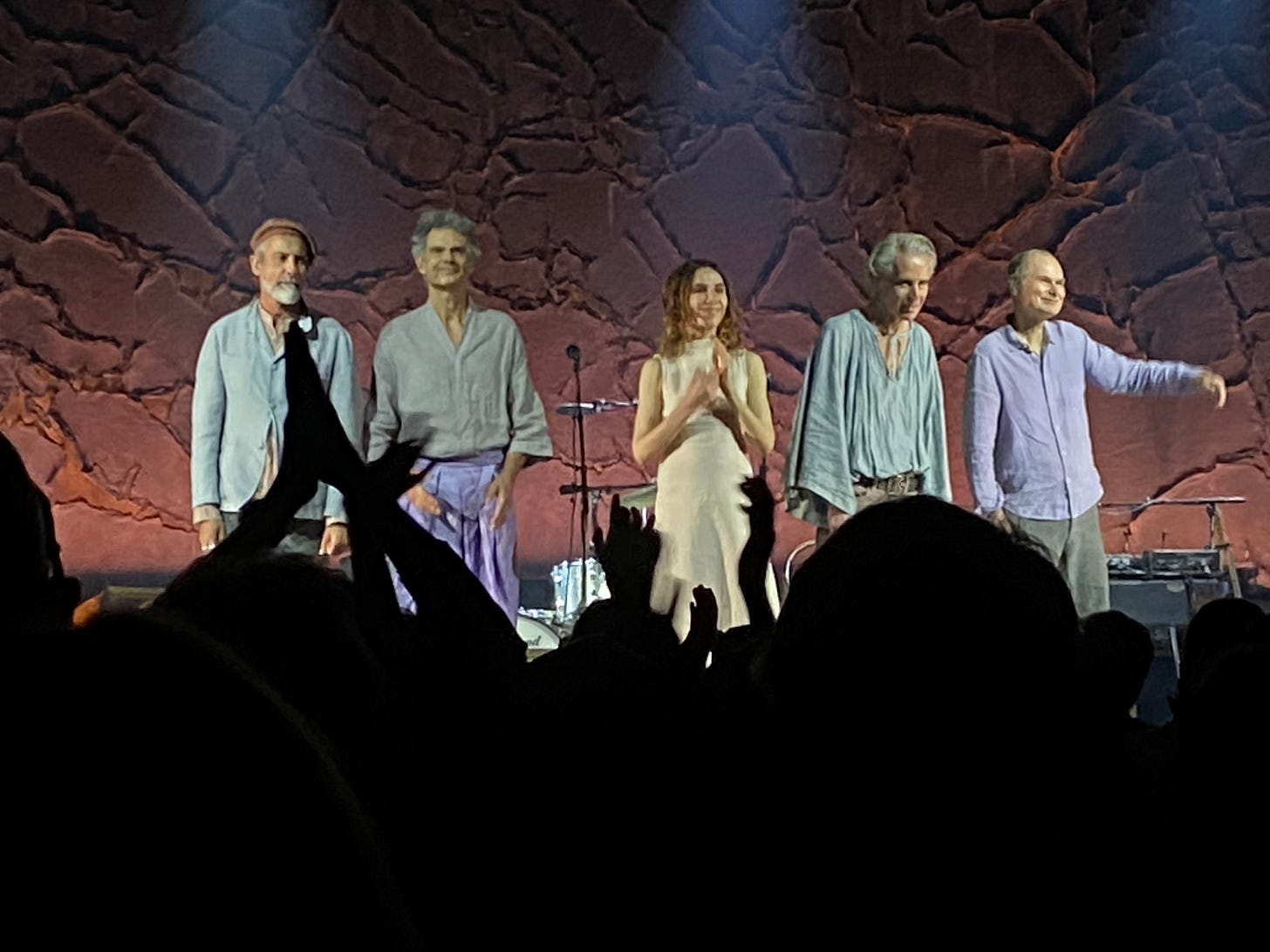
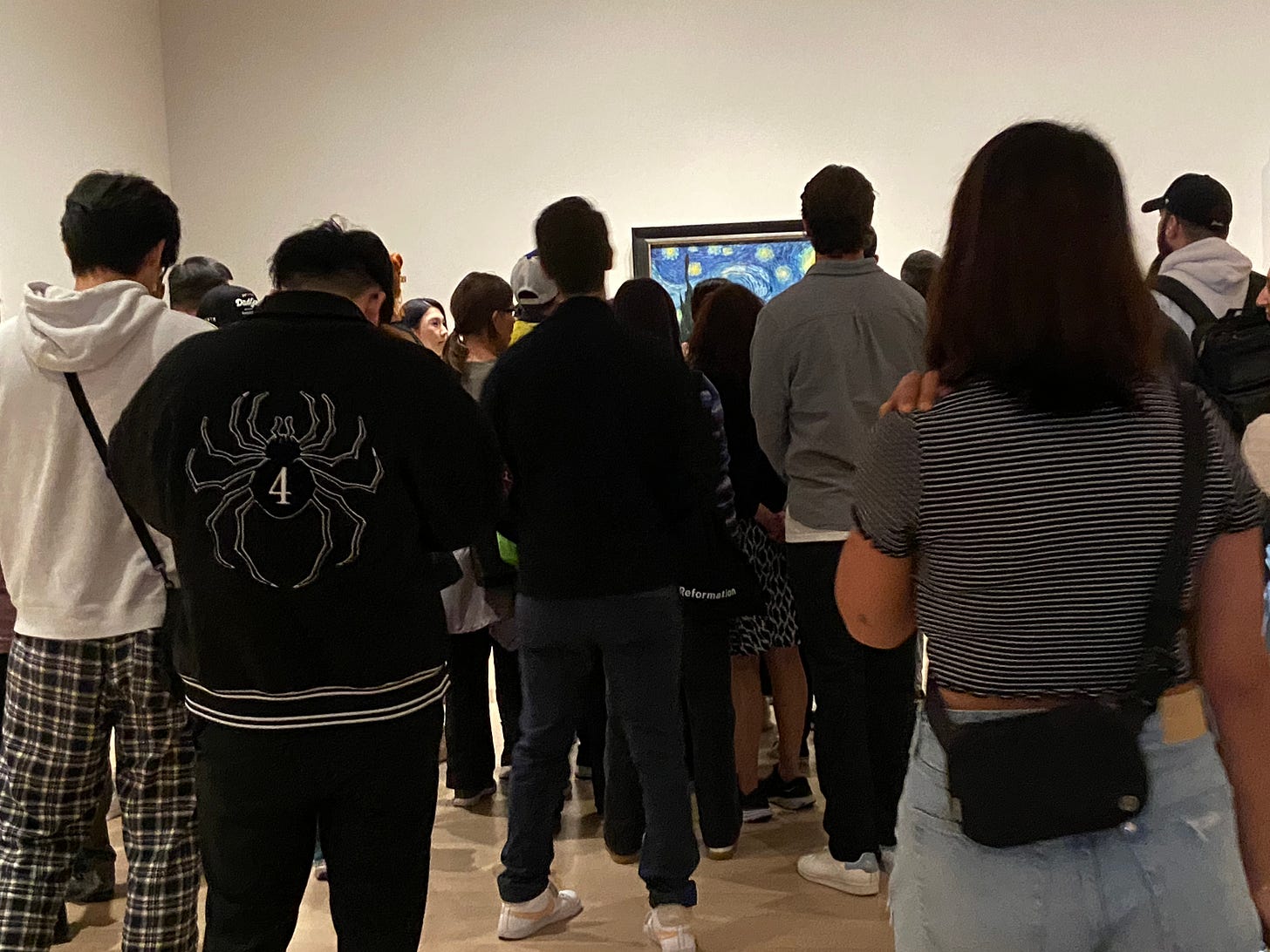
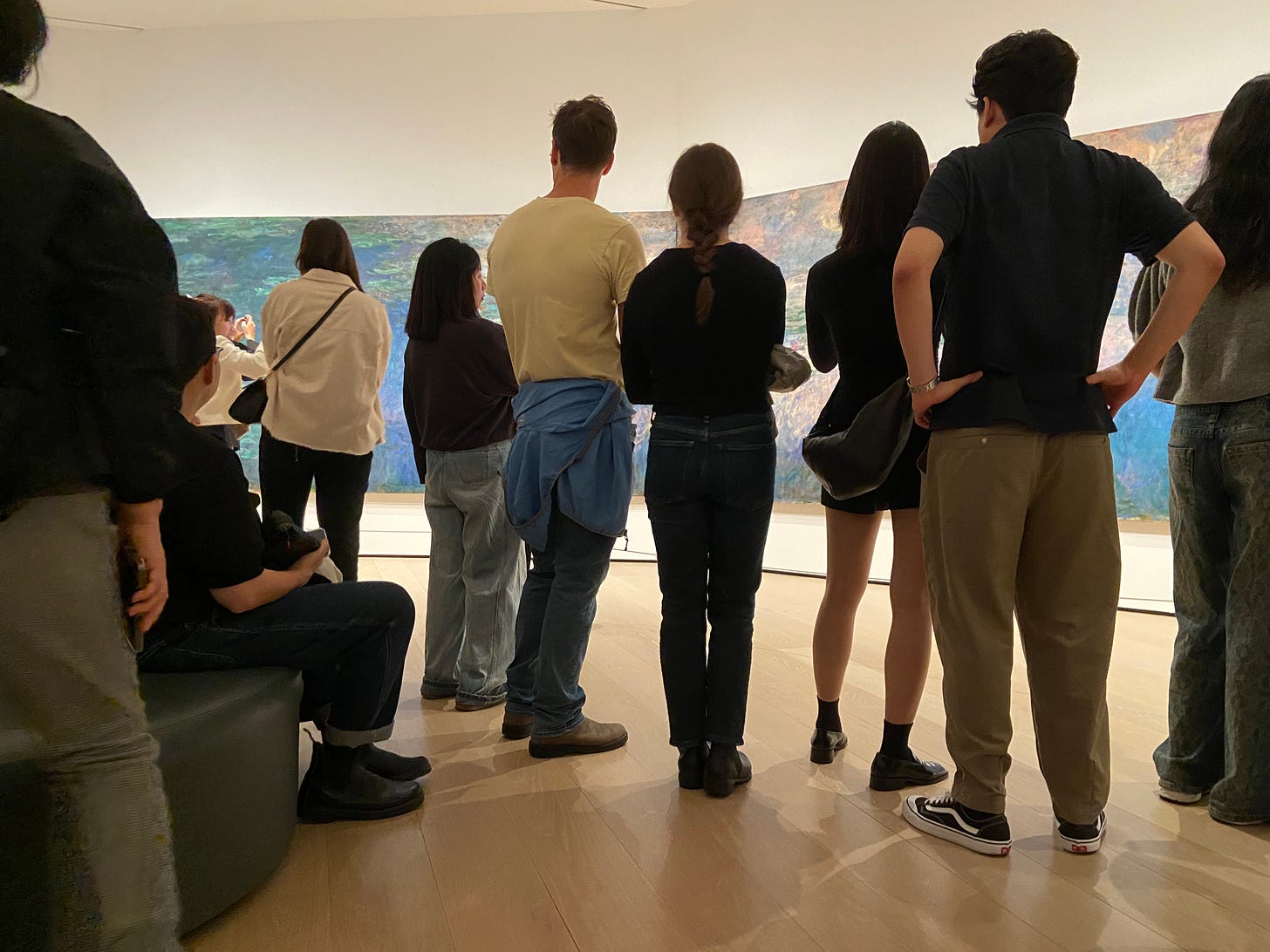
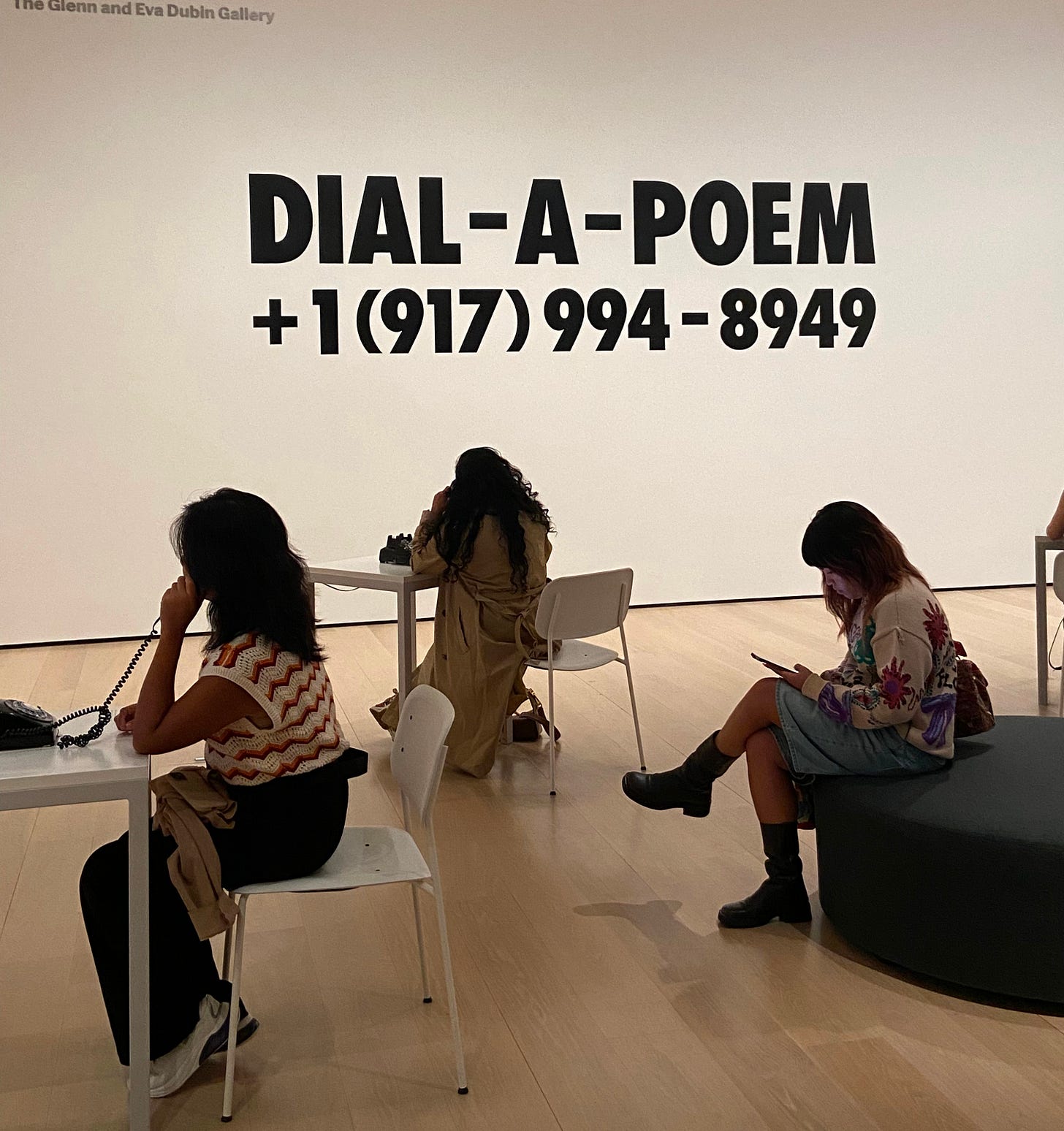
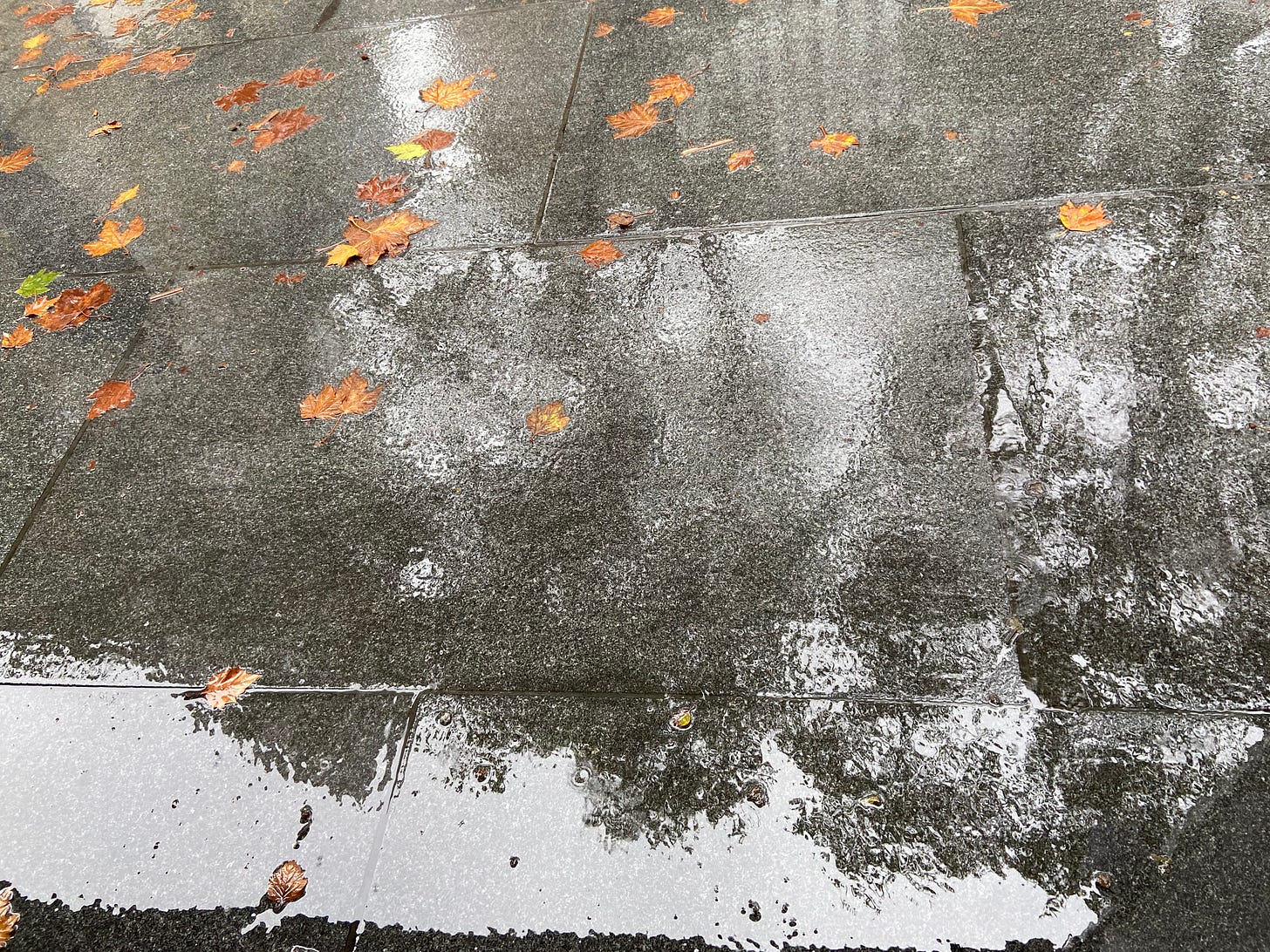
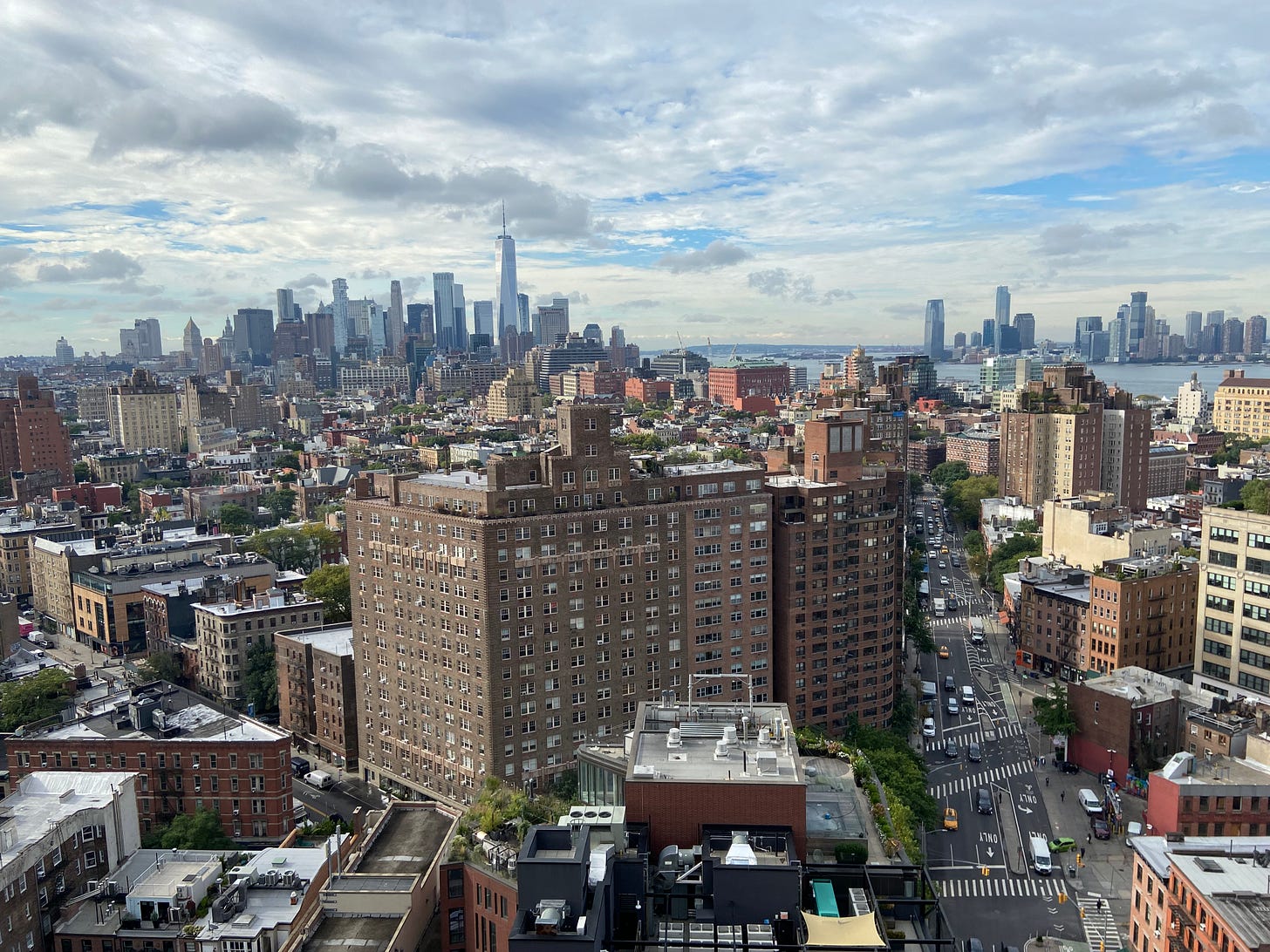
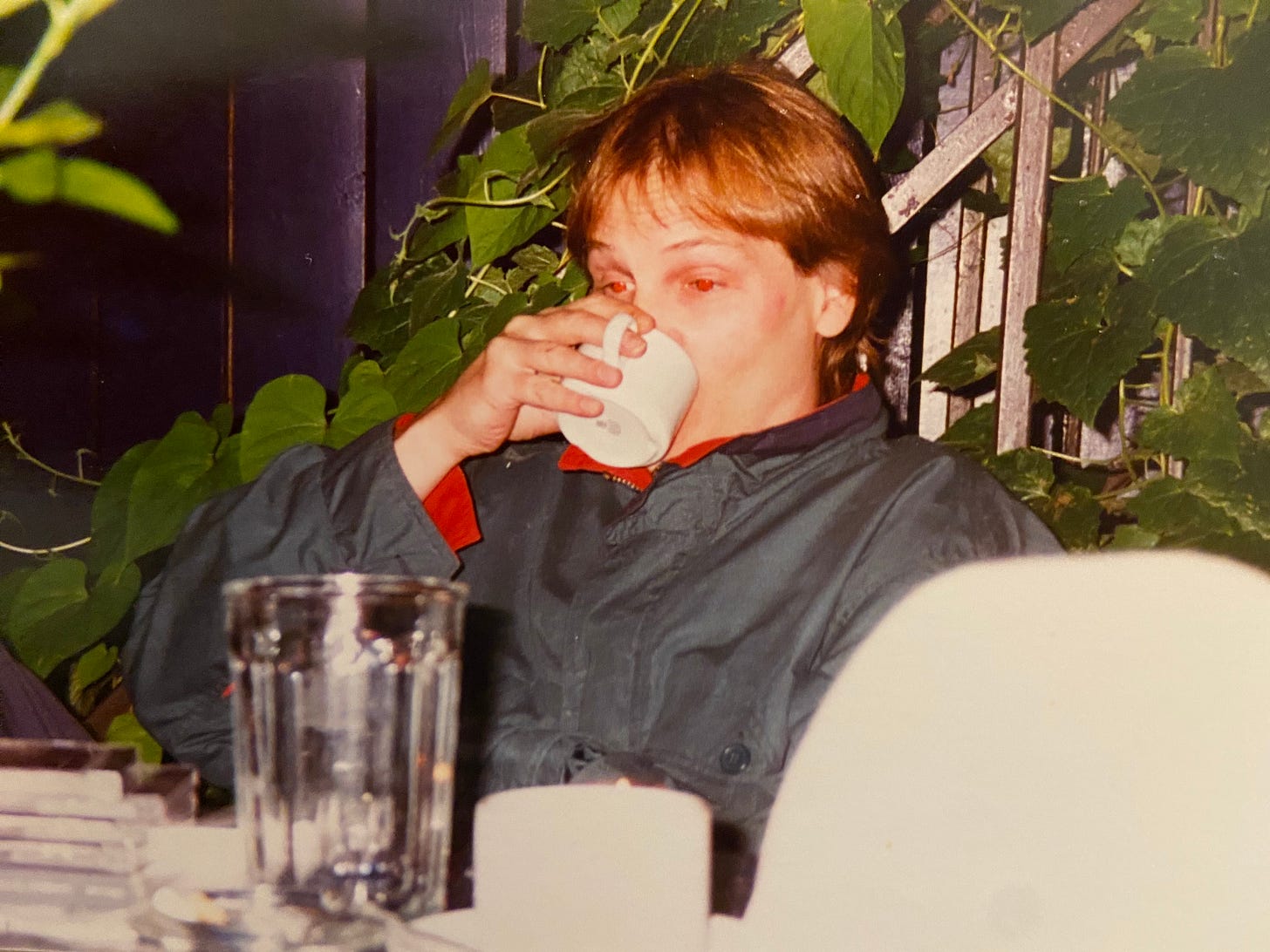
Loved reading this Jay. Thank you. Miss those days too. And John.